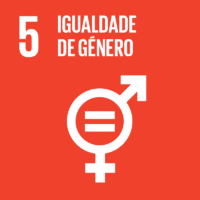Ciência_Iscte
Publicações
Descrição Detalhada da Publicação
Inequality in the network society: an integrated approach to ICT access, basic skills, and complex capabilities
Título Revista
Telecommunication Policy
Ano (publicação definitiva)
2015
Língua
Inglês
País
Reino Unido
Mais Informação
Web of Science®
Scopus
Google Scholar
Abstract/Resumo
This paper seeks to apply a new approach to the study of informational inequality, that is, the phenomenon of ICT-related inequality in the transition to the so-called “network society”. We propose a composite measure of digital inclusion/exclusion which combines three sub-indexes, each integrating a number of variables into a single indicator. This framework covers access (to ICT devices and technological connectivity), basic skills (individual know-how for elementary uses), and complex capabilities (higher-level ability for creative engagement and ICT-mediated interaction). On the basis of a composite measure ranging from 0 to 100 we provide quantitative assessments of informational inequality levels amongst individuals and by employing an ordered probit model we are able to identify its key determinants. We explore a large and rather under-exploited nationally representative dataset – the official large-scale survey of information and knowledge society, a Eurostat standardised data collection instrument. In Portugal this is implemented by the Portuguese National Statistics Office, which for 2011 reached a sample of 7175 respondents. Results show a high level of inequality, especially in terms of ability for basic as well as complex ICT utilisation. This particular inequality configuration seems to be mostly explained by age, education, employment situation, household type, and income distribution. Methodological approaches such as ours, which may be extended to other national cases, can be considered as an increasingly appropriate way to address the need for a new generation of equality-friendly ICT policies that go beyond the early notions of “digital divide” focusing on the availability of ICT tools (to have or to not have resources) and start addressing individual and interactive uses (emerging behavioural developments).
Agradecimentos/Acknowledgements
--
Palavras-chave
ICT use,Inequality,Access,Skills,Composite index,Portugal
Classificação Fields of Science and Technology
- Engenharia Eletrotécnica, Eletrónica e Informática - Engenharia e Tecnologia
- Ciências da Comunicação - Ciências Sociais
Registos de financiamentos
| Referência de financiamento | Entidade Financiadora |
|---|---|
| PEst-OE/EGE/UI0315/2011 | Fundação para a Ciência e a Tecnologia |
| UID/GES/00315/2013 | Fundação para a Ciência e a Tecnologia |
Contribuições para os Objetivos do Desenvolvimento Sustentável das Nações Unidas
Com o objetivo de aumentar a investigação direcionada para o cumprimento dos Objetivos do Desenvolvimento Sustentável para 2030 das Nações Unidas, é disponibilizada no Ciência_Iscte a possibilidade de associação, quando aplicável, dos artigos científicos aos Objetivos do Desenvolvimento Sustentável. Estes são os Objetivos do Desenvolvimento Sustentável identificados pelo(s) autor(es) para esta publicação. Para uma informação detalhada dos Objetivos do Desenvolvimento Sustentável, clique aqui.

 English
English




